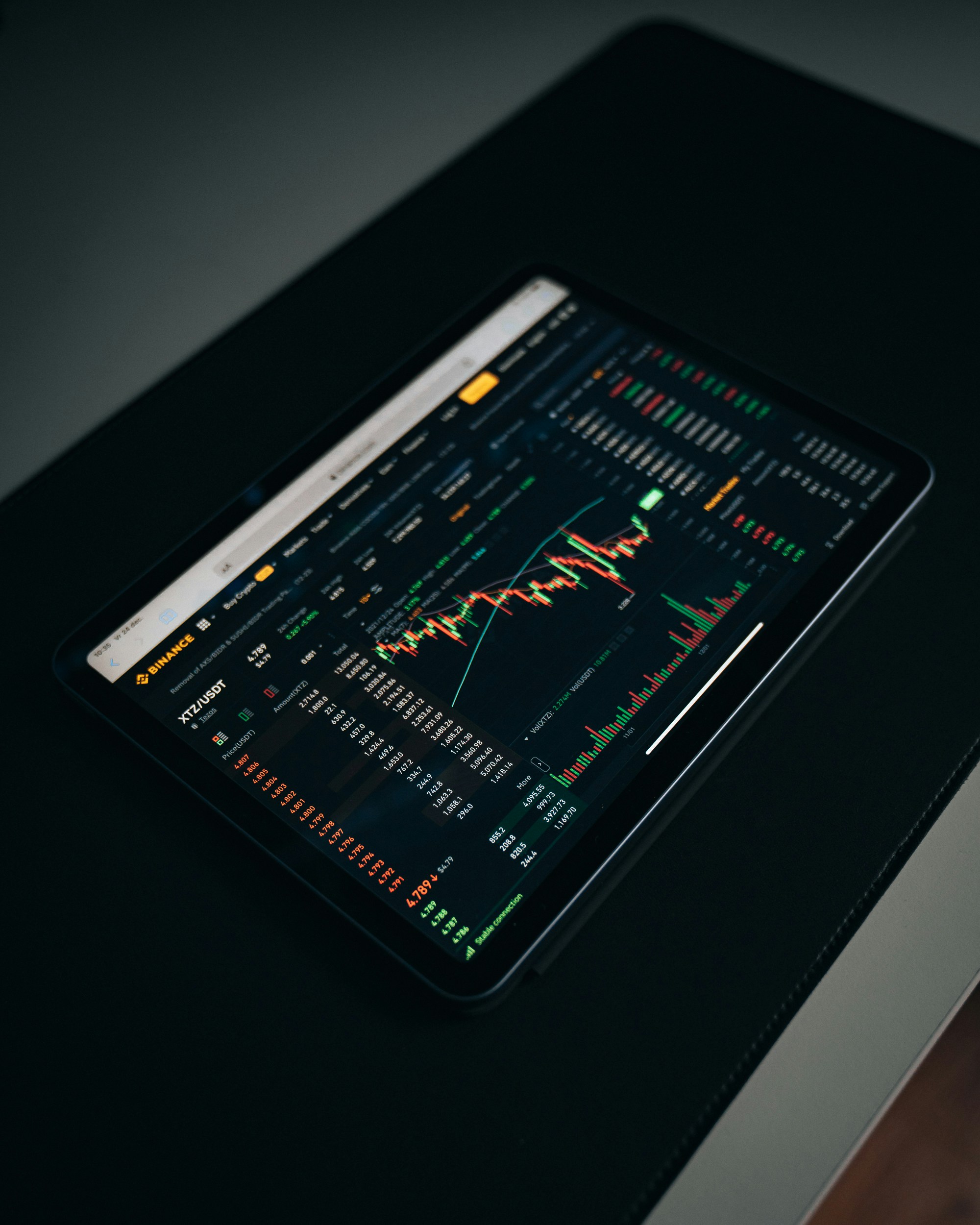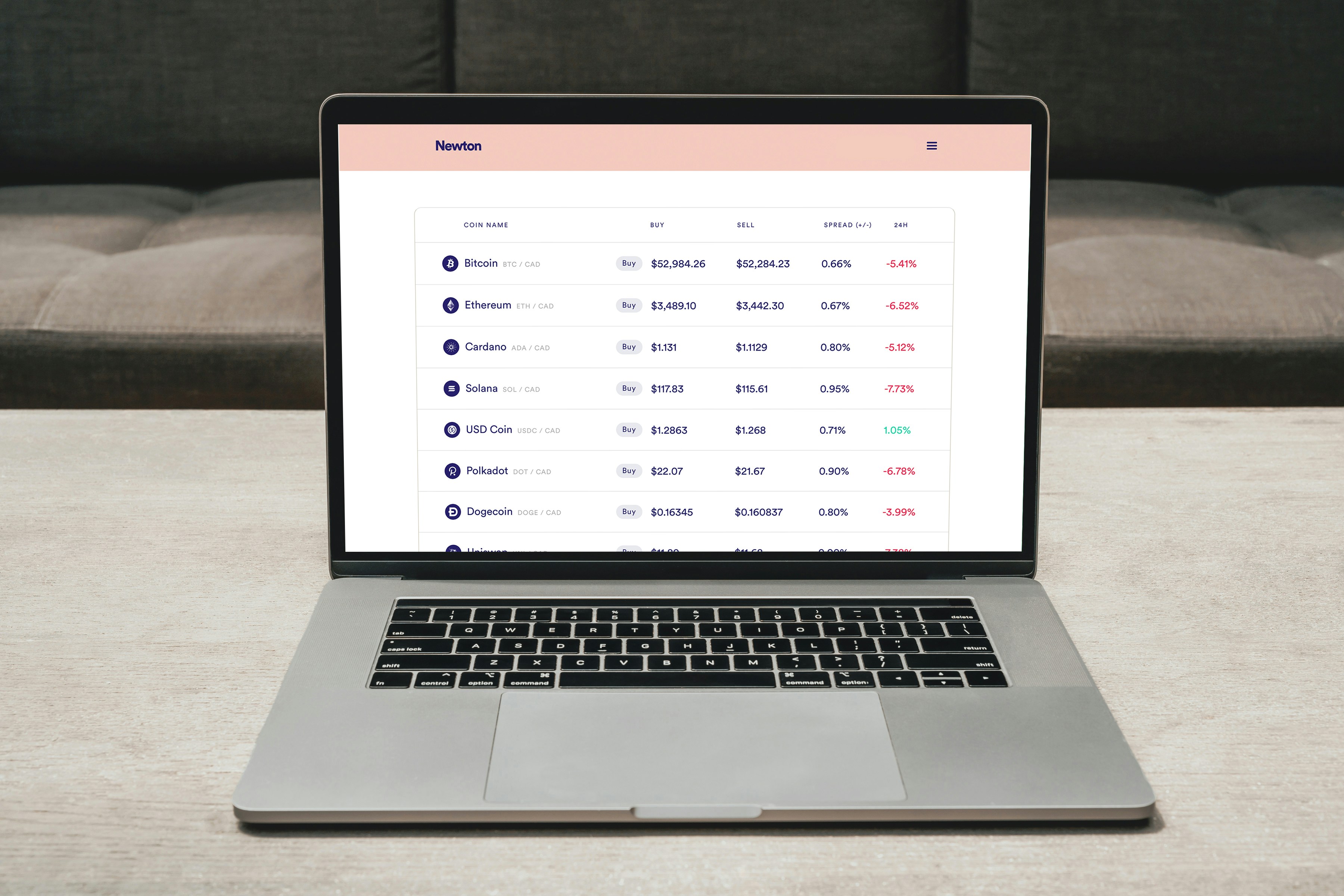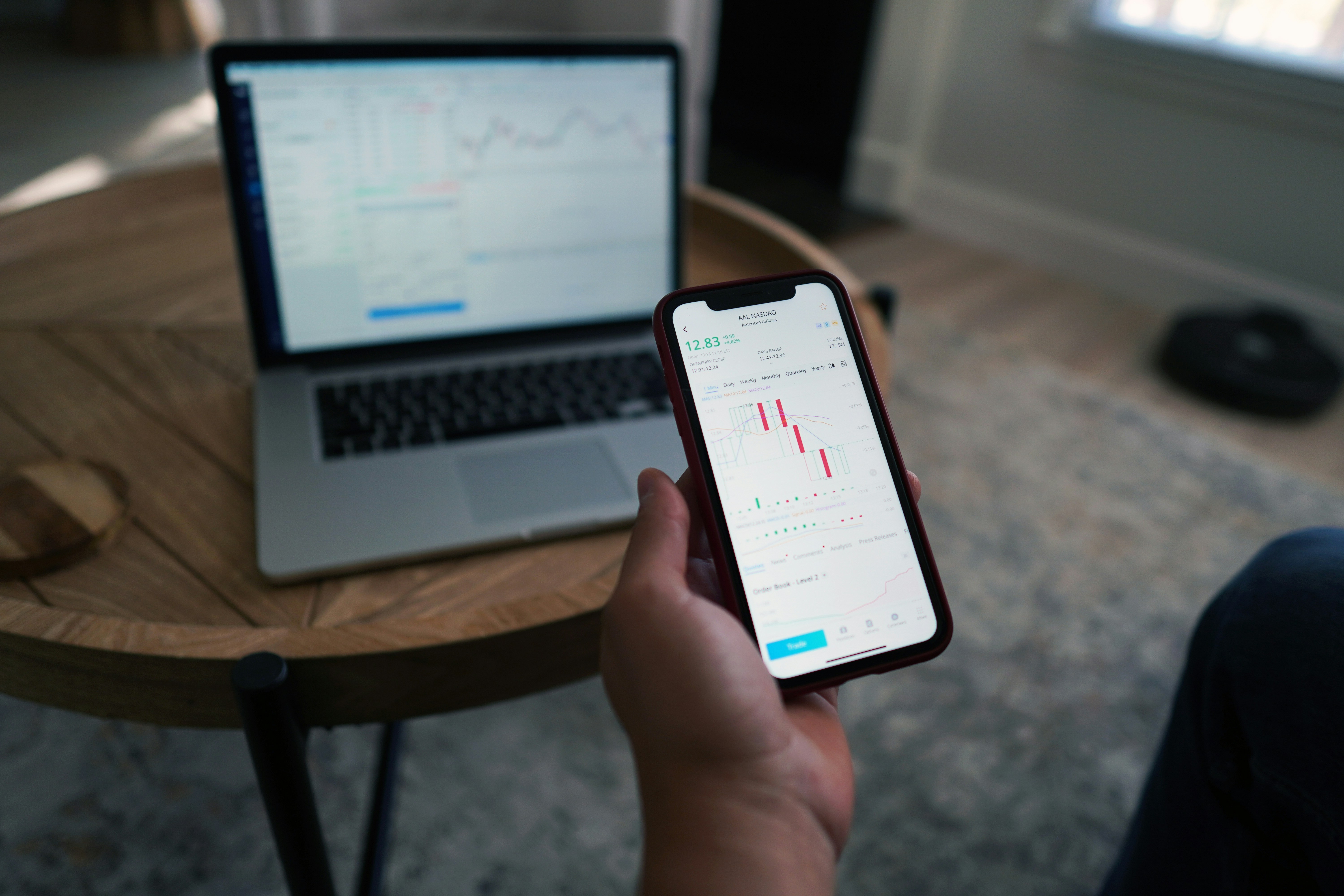
Introduction to Robinhood
Robinhood is an innovative investment platform that has transformed the traditional landscape of stock trading since its inception in 2013. Founded by Vladimir Tenev and Baiju Bhatt, Robinhood emerged with a mission to democratize finance for all, aimed at making investing accessible to everyone, especially those who have previously faced barriers in the financial markets. The platform’s cornerstone feature is commission-free trading, which allows users to buy and sell stocks, ETFs, options, and cryptocurrencies without incurring transaction fees, effectively leveling the playing field for retail investors.
With a user-friendly mobile app that streamlines the process of buying and selling investments, Robinhood has quickly gained popularity, especially among younger generations, including millennials and Gen Z. These demographics are often looking for straightforward, no-frills investment solutions that provide the ability to actively engage in the stock market without the intimidation factors associated with traditional brokerage firms. By focusing on these first-time investors, Robinhood has positioned itself as a leader in the fintech arena, catering to those who seek to take control of their financial futures.
The Robinhood investment platform not only simplifies the trading process but also integrates educational resources, helping users make informed decisions. This emphasis on financial literacy is crucial, as it encourages responsible investing behaviors among novice investors. Moreover, the platform’s mission extends beyond mere trading; it encompasses a broader goal of making financial markets more inclusive. By eliminating fees and providing easy access to investment opportunities, Robinhood is working to break down the economic and social barriers that have historically limited participation in the financial markets.
Key Features of Robinhood
Robinhood has emerged as a significant player in the investment landscape, primarily due to its innovative features that appeal to both novice and experienced investors. One of the standout attributes of the Robinhood investment platform is its commission-free trading model. This allows users to engage in stock trading without incurring the typical brokerage fees, which is particularly advantageous for individuals looking to start trading with limited resources. By removing such financial barriers, Robinhood democratizes the investing process, empowering more users to manage their investment portfolios actively.
Another noteworthy feature is the user-friendly mobile app, designed to offer seamless accessibility and an intuitive trading experience. The app provides robust functionality, allowing investors to execute trades, monitor stock performance, and manage their portfolios with ease, all from their mobile devices. This mobile-first approach caters to a tech-savvy audience who value convenience and efficiency when making investment decisions.
In addition to traditional stock trading, Robinhood has made strides in cryptocurrency trading, enabling users to buy, sell, and hold various digital currencies directly on the platform. This integration of cryptocurrency trading features caters to the growing interest in digital assets, thereby expanding the investment opportunities available to Robinhood users. Furthermore, the platform allows for fractional shares trading, which lets users purchase portions of a share instead of requiring the full amount. This means that even with limited funds, investors can gain access to high-priced stocks, making the investment landscape more inclusive.
Moreover, Robinhood provides educational resources designed to enhance users’ understanding of investing. These resources include articles, tutorials, and guides that cover fundamental and advanced investment concepts. By prioritizing education, the platform aims to build user confidence and promote informed trading decisions, ultimately cultivating a more knowledgeable investor community.
The Impact of Commission-Free Trading
The introduction of commission-free trading has significantly transformed the investment landscape, steering both novice and seasoned investors towards platforms like Robinhood. This investment model eliminates the fees typically associated with executing trades, thus encouraging individuals to engage more actively in the stock market. The absence of commissions minimizes the barrier to entry, allowing users to trade smaller amounts without the fear of losing a significant portion of their investment to fees. Users can now pursue more diversified portfolios, experimenting with high-frequency trading without the looming costs that traditional brokerages impose.
One of the notable advantages of commission-free trading is the democratization of investing. It has empowered everyday individuals to participate in the market, fostering a new generation of retail investors. With platforms like Robinhood, the ease of trading allows users from diverse backgrounds to attempt strategies that were previously reserved for those with significant capital. Moreover, educational resources accompanying these platforms enable users to make more informed decisions, thus enhancing their overall investing experience.
However, this model isn’t without its challenges. Critics argue that the push towards commission-free trading may lead to impulsive decision-making, given the low cost of executing trades. The gamification of investing, often seen on platforms like Robinhood, could encourage a speculative attitude, which could be detrimental in volatile markets. Furthermore, as more users flock to commission-free platforms, traditional brokerages are compelled to adapt, often resulting in a decline in the quality of their services.
Real-world examples indicate a significant shift in trading behavior; many investors are increasingly leaning towards platforms that offer free trades, evidenced by a spike in the number of trades conducted amid market fluctuations. As this trend continues, it is essential to consider the broader implications on the market dynamics and the sustainability of the commission-free model in the long term.
Understanding the Risks of Using Robinhood
The rise of the Robinhood investment platform has marked a significant shift in the financial landscape, particularly for new investors. However, utilizing this platform is not without its risks. One of the foremost risks associated with Robinhood, as with any investment platform, is market risk. Market risk refers to the possibility of losing money due to unfavorable changes in market conditions. Investors using Robinhood must be aware that the stock market is volatile, and fluctuations in price can lead to unexpected losses, particularly for those who engage in short-term trading.
Another critical risk to consider is the trading of options, which is prominently featured on the Robinhood platform. Options trading can be complex and risky, especially for novice investors. Unlike traditional stock trading, options involve the right to buy or sell a stock at a predetermined price before a specific date. While this can potentially lead to high returns, it also exposes investors to significant losses, including the total premium paid for the option. It is crucial for users to possess a firm understanding of these financial instruments before venturing into options trading.
Psychological factors also play a pivotal role in investment decisions. The ease of trading offered by Robinhood can lead users to impulsively react to market movements, driven by emotions such as fear and greed. This behavioral risk can result in poor investment choices, such as panic selling during market downturns or overenthusiastic buying without adequate research. Investors must recognize the importance of maintaining discipline and following a strategy based on thorough analysis rather than emotional responses.
In conclusion, while the Robinhood investment platform provides an accessible entry point for many, it is essential for users to thoroughly understand the risks involved. Conducting independent research and practicing solid risk management strategies will be pivotal to navigating potential pitfalls associated with this revolutionary investment tool.
Reviews and User Experiences
Robinhood’s rise in the investment sphere has been accompanied by a plethora of user reviews and experiences that offer insights into the platform’s efficiency and challenges. Many users commend the platform for its user-friendly interface and the seamless access it provides to stock trading. Investors appreciate the opportunity to trade without incurring traditional brokerage fees, significantly lowering the barriers to entry for new investors. Testimonials frequently highlight how the robin hood investment platform empowers individuals to take control of their financial futures, supporting a generation keen on engaging with stock markets with ease.
Positive feedback often revolves around the app’s intuitive design, which allows novice investors to navigate trading activities effortlessly. Users describe the experience as smooth, particularly when executing trades and tracking portfolio performance. Furthermore, Robinhood’s educational resources have been acknowledged as valuable aids for users who are new to investing. Many have expressed gratitude for the trading tools provided, which help demystify the stock market and foster informed decision-making.
However, not all experiences have been favorable. Some users have flagged issues with customer service, claiming slow response times and lack of assistance during critical moments, such as trading outages during market volatility. Instances of system outages have also drawn criticism, particularly during high-demand times, leading to frustrations among those who rely on the platform for timely transactions. Overall statistics reveal mixed satisfaction levels; while some survey results demonstrate a majority of users are pleased, significant portions report dissatisfaction due to these shortcomings.
In conclusion, user experiences with the robin hood investment platform vary greatly, reflecting both its innovative approach to democratizing finance and the operational challenges that can arise. The balance of positive and negative feedback highlights the need for ongoing improvements to enhance overall user satisfaction and maintain the platform’s competitive edge in the investment landscape.
Comparing Robinhood with Other Investment Platforms
When evaluating investment platforms, Robinhood stands out for its commission-free trading model, which has significantly disrupted the traditional brokerage industry. Unlike established platforms such as ETRADE, Charles Schwab, and Fidelity, Robinhood’s approach eliminates trading fees for stocks, ETFs, and options. This cost-effective structure makes it particularly appealing to beginner investors and those looking to make frequent trades without incurring hefty charges.
In terms of features, Robinhood provides a streamlined interface that focuses on simplicity and accessibility. While it excels in user experience with an intuitive app and easy account setup, more established brokers like ETRADE and Fidelity offer a broader range of investment tools and research resources. These platforms typically provide advanced trading options, in-depth market analysis, and educational materials that may be better suited for experienced investors seeking comprehensive features. Furthermore, Charles Schwab includes robust customer support, which some users might find lacking with Robinhood’s primarily digital-based assistance.
Additionally, Robinhood’s limited offerings, such as the absence of mutual funds and fixed-income products, could be a drawback for those looking for a more diversified investment portfolio. In comparison, platforms like Fidelity and ETRADE offer a full suite of investment options, including retirement accounts and personalized financial advice, which caters to a variety of investment strategies.
For a clearer understanding of how Robinhood compares to its major competitors, the following table outlines key attributes:
| Platform | Commission Fees | Investment Options | User Experience |
|---|---|---|---|
| Robinhood | None | Stocks, ETFs, Options | High |
| ETRADE | None | Stocks, ETFs, Options, Mutual Funds | Moderate |
| Charles Schwab | None | Stocks, ETFs, Options, Mutual Funds | High |
| Fidelity | None | Stocks, ETFs, Options, Mutual Funds | High |
Ultimately, the choice of investment platform will depend on individual needs and preferences, making it essential for investors to weigh these factors carefully when considering Robinhood against its competitors.
Staying Informed: Resources and Tools Offered by Robinhood
In the realm of investment, financial literacy is paramount. The ability to comprehend market dynamics, asset performance, and economic indicators can significantly influence an investor’s success. Recognizing this need, Robinhood has integrated a plethora of educational resources and tools within its platform, designed to empower users with knowledge and insights, thereby enhancing their investment experience.
Robinhood offers a variety of articles and tutorials that explain fundamental concepts, catering to both novice and experienced investors. These resources cover essential topics such as stock market basics, investment strategies, and the importance of diversification. By providing accessible knowledge, Robinhood aims to equip users with the information they need to make informed decisions about their portfolios, particularly when engaging in trades through its investment platform.
Additionally, the Robinhood platform features real-time market data and analytics, allowing users to monitor price movements and trends. This data is invaluable for making tactical decisions on buying or selling assets within their robin hood investment accounts. The inclusion of interactive charts and technical indicators serves to enhance user engagement and understanding of market fluctuations.
Moreover, Robinhood continuously updates and expands its educational offerings, reflecting its commitment to fostering financial literacy among its user base. Recent enhancements include the introduction of webinars and workshops, which provide deeper dives into specific topics. Such initiatives not only increase user knowledge but also build a sense of community among investors keen on learning and sharing insights.
Ultimately, by prioritizing education and providing a wealth of resources, Robinhood empowers users to navigate the complexities of investing with confidence, making informed decisions that can lead to fruitful outcomes.
Regulatory Scrutiny and Controversies
Robinhood, the commission-free trading platform, has faced significant regulatory scrutiny and controversies since its inception. One of the most notable incidents occurred in early 2020, during a period of intense market volatility. As stocks like GameStop surged due to retail investor interest, Robinhood imposed trading restrictions on specific stocks, which led to widespread backlash from users and lawmakers alike. This sparked allegations of market manipulation and raised questions about the platform’s practices, particularly concerning its commitment to democratizing investing.
The limitations on trading certain high-volatile stocks were justified by the company as measures aimed at maintaining liquidity and meeting clearinghouse requirements. However, these actions were criticized for undermining the very principles of accessibility that Robinhood advertised. Many users felt that they were being deprived of their rights to trade freely, leading to a number of lawsuits and calls for stricter regulatory oversight. The events highlighted the fine line that exists between innovative trading platforms and the obligations they hold towards their users, especially during periods of market upheaval.
Moreover, the scrutiny on Robinhood intensified following its initial public offering in 2021. Regulatory bodies, including the Financial Industry Regulatory Authority (FINRA), investigated the company’s business practices and its handling of customer management, particularly regarding the gamification of trading. Critics argued that by making investing feel like a game, Robinhood may have encouraged reckless trading behavior among inexperienced investors. Such controversies have prompted discussions on potential regulatory changes tailored for digital brokerages to ensure that they maintain a balance between user engagement and responsible trading practices.
In conclusion, Robinhood’s journey reflects the challenges faced by modern investment platforms under regulatory scrutiny. The controversies surrounding trading restrictions and gamification practices have important implications for both the platform itself and the broader financial landscape, ultimately influencing the future of online investing.
The Future of Robinhood and Investing
The landscape of investing is rapidly evolving, and Robinhood stands as a significant player in shaping future trends within this domain. As technology continues to advance, the platform is likely to incorporate more sophisticated algorithms and machine learning techniques to enhance user experience. This could manifest in the form of personalized investment strategies, allowing users to receive tailored recommendations based on their financial goals and risk tolerance. As the democratization of finance gains momentum, Robinhood may also expand its educational offerings, empowering newer investors to make informed decisions.
Regulatory scrutiny has consistently been a focal point for Robinhood, especially following events such as the GameStop trading saga. Future regulatory changes may necessitate increased transparency and compliance measures from investment platforms. This could lead Robinhood to adapt its business model to not only satisfy regulatory bodies but also to build trust among its user base. Emphasizing security and ethical trading practices could enhance patron confidence in the platform, thereby influencing overall investor behavior.
Additionally, the shift between passive and active investing strategies is a pertinent trend to monitor. While Robinhood initially attracted users seeking dynamic trading opportunities, the rise of robo-advisors and index funds is reshaping investor preferences. It is likely that Robinhood will have to navigate this paradigm by potentially introducing features that cater to passive investors looking for long-term growth without active management of their portfolios.
As a platform that thrives on innovation, Robinhood’s future will be characterized by its ability to adapt to these trends while retaining its core mission of democratizing finance. Users might expect enhanced functionalities that align with emerging market behaviors and the ever-shifting regulatory landscape. Ultimately, the evolution of Robinhood will reflect broader changes within the investment ecosystem, influencing how people engage with their finances.




